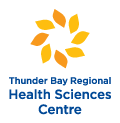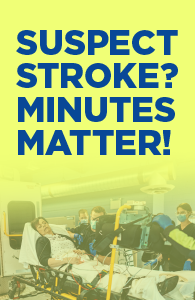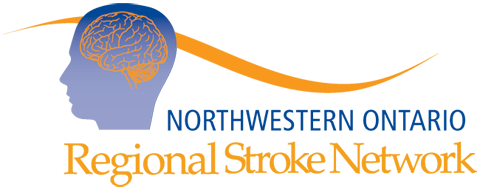Fatigue a major barrier to physical, cognitive recovery after stroke, new study finds

This article was provided by Canadian Partnership for Stroke Recovery and placed on the NWORSN Website
Better diagnosis, more research needed to counteract debilitating condition TORONTO _ Fatigue is closely related to poorer physical recovery after stroke, according to a study of 335 stroke patients at four rehabilitation centres in Ontario published today in Frontiers in Aging Neuroscience. A third of the people who have a stroke – there are 62,000 strokes in Canada every year – experience debilitating fatigue, which may be caused by depression, sleep disturbances, lesions in the brain, or other unidentified factors. “Post-stroke fatigue is paralyzing,” says Dr. Bradley MacIntosh, neuroimaging scientist at Sunnybrook Research Institute, who is the lead author. “It is characterized by extreme tiredness, weakness, and exhaustion. It is the feeling that even if I could move, it would take too much effort.” Sunnybrook’s Dr. Walter Swardfager, scientist in the Brain Sciences Program and senior author of the study adds: “It is easy to imagine how these symptoms might impact recovery, given the many benefits of being physically active after a stroke.” To complicate things, some symptoms of fatigue overlap with post-stroke depression, making it difficult to disentangle their impacts on different aspects of stroke recovery. If fatigue is misidentified as depression, some anti-depressants may, in fact, make fatigue worse. “There is no proven treatment for fatigue after a stroke,” says Dr. Swardfager, who is also an Assistant Professor of Pharmacology & Toxicology at the University of Toronto. “We need to identify how fatigue poses a barrier to recovery, and understand the causes of fatigue so that we can treat it specifically.” Funded by the Heart and Stroke Foundation Canadian Partnership for Stroke Recovery (CPSR), the post-stroke fatigue study is one of the largest ever conducted. As part of the study, patients who had experienced stroke within the previous six months were recruited from four CPSR-affiliated rehabilitation centres. These patients were screened for fatigue (using a tool called the Fatigue Assessment Scale) and they were assessed on their mobility (walking and balance) and cognitive function (memory, thinking speed and reasoning). “Fatigue and depressive symptoms have influences that we previously failed to appreciate,” Dr. MacIntosh says. The study found that fatigue was directly linked to poorer physical recovery. Fatigue was also related to poorer cognitive recovery, but only if patients also experienced depressive symptoms. The authors say that improved screening is required to identify and treat fatigue and depression in order to ensure the best possible physical and cognitive recovery from stroke. They want to see the establishment of a working group to dig deeper into the causes of post-stroke fatigue. “If we screen for and treat Obstructive Sleep Apnea, will that improve fatigue? Or Type 2 Diabetes, which affects about a third of stroke survivors?” Dr. Swardfager says that identifying and studying fatigue “opens the door to finding the intervention that will be most useful for each person.” Former intensive-care-unit nurse Marilyn Kenny, who has experienced fatigue since her stroke at age 52, says further research is critical because “as I tell my doctor, I can live without my right-hand working, but the fatigue is so annoying because it affects everything in your life.” She describes fatigue as feeling completely depleted of energy. “It’s the absolutely undeniable feeling that you have to put your head down and lose consciousness for a while.” Sunnybrook stroke neurologist Dr. Rick Swartz agrees: “This is an important area of research because, for many patients, fatigue is a major limiting factor. I hear this especially often from my younger patients after stroke. They frequently tell me that they may be doing very well when, all of a sudden, they “hit a wall” and just need to rest or sleep. This is often a source of frustration, especially as they are trying to recover or reintegrate back to work or life responsibilities.” There are more than 405,000 Canadians living with long-term stroke disability, a number that’s expected to rise by 80% in the next 20 years due to the aging population and a rise in stroke risk factors. Study co-authors include Jodi Edwards, Mani Kang, Hugo Cogo-Moreira, Joyce L. Chen, George Mochizuki, and Nathan Herrmann. Contact: Cathy Campbell, HSF Canadian Partnership for Stroke Recovery cathy@canadianstroke.ca 613-852-2303 The HSF Canadian Partnership for Stroke Recovery is a joint initiative of the Heart and Stroke Foundation and Canada’s leading stroke research centres. Headquartered at the University of Ottawa, the Partnership is restoring lives through research. The Partnership was the first organization worldwide focused exclusively on stroke recovery research. Now, it is a model for other countries. Learn more at www.canadianstroke.ca. |






